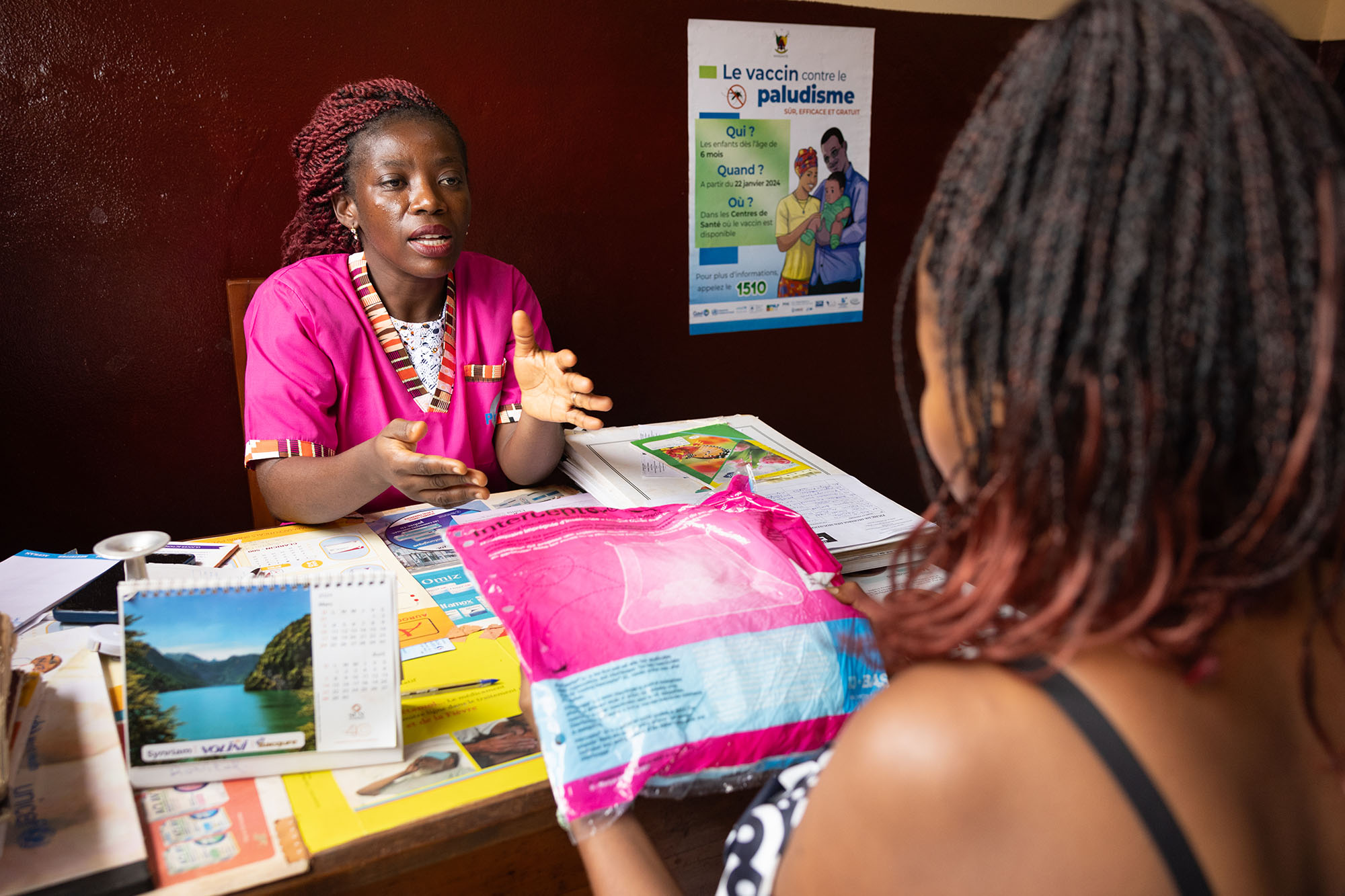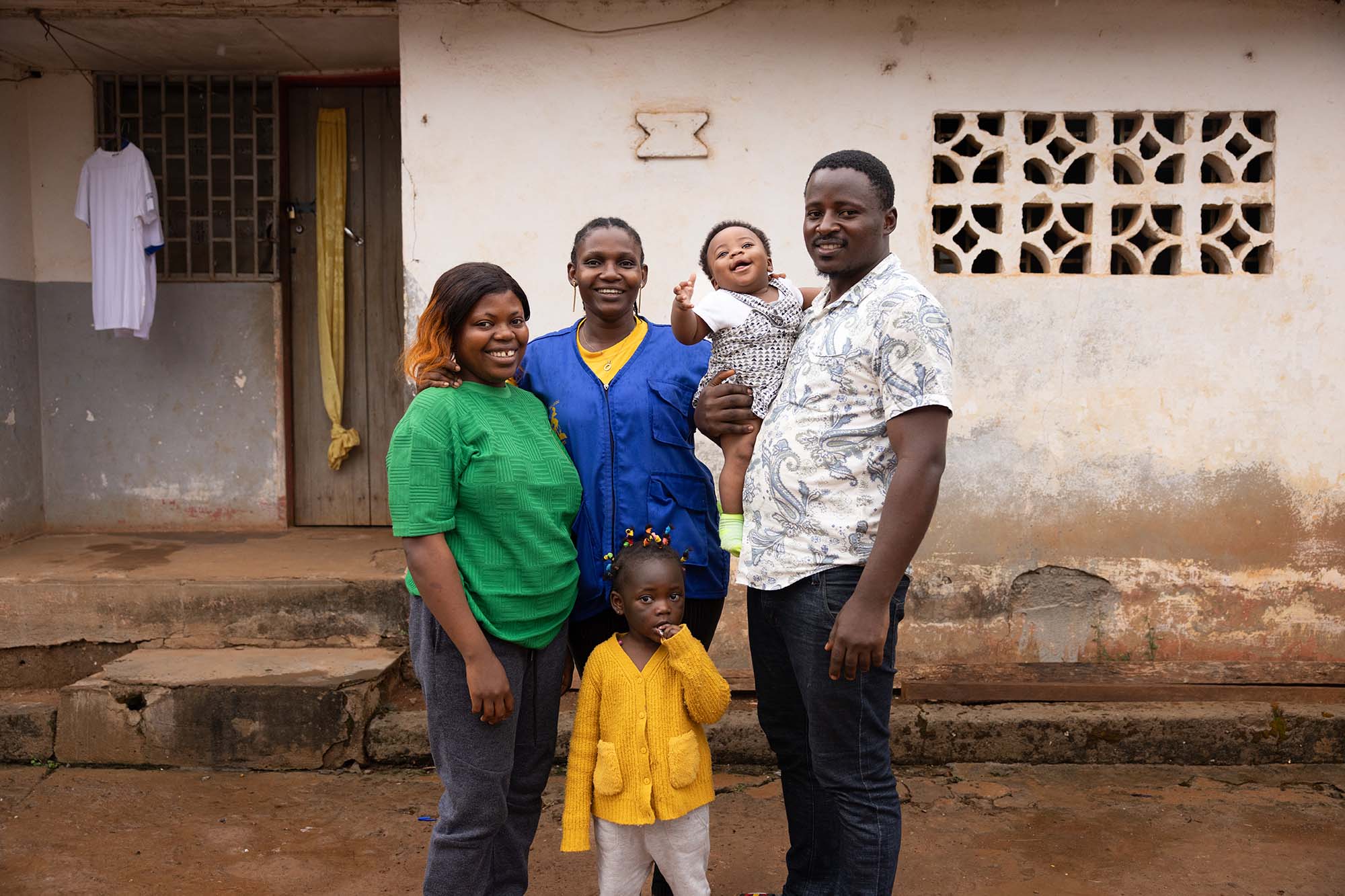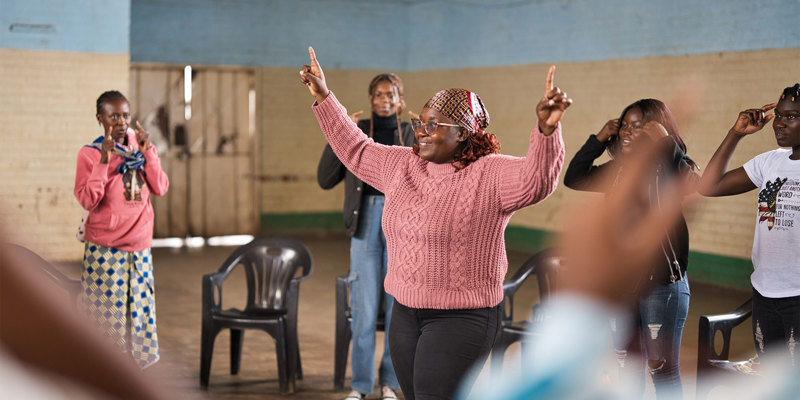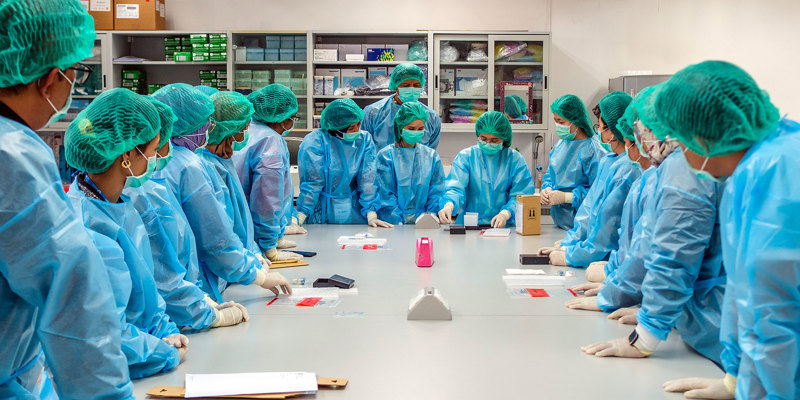

The Women Leading the Charge Against Malaria in Cameroon
We have new tools, but it is the health workers on the frontline who make the difference against malaria.
No one should die from malaria. It is unacceptable that hundreds of thousands of lives continue to be lost each year to a disease that has plagued us for millennia. As African ministers of health highlighted at the Malaria Ministerial Conference held last month in Yaoundé, Cameroon, we have the tools to end this disease for good.
Tools like the latest dual active ingredient (AI) nets which are coated with two insecticides, making them more effective against mosquitoes that have built up resistance to standard nets. Other tools include indoor residual spraying, seasonal malaria chemoprevention for children under 5, and intermittent preventive treatment to protect pregnant women from the disease. And now, two new vaccines – RTS,S and R21 – are the latest addition to the toolbox. All these tools are most effective when used together as part of comprehensive national malaria control plans.
However, tools alone will not suffice to end malaria. Their success depends entirely on the strength of the health systems through which they are deployed. Ultimately, these health systems rely on a trained and integrated health workforce to reach and serve the communities most affected by malaria.
These are the people on the frontlines, tackling the devastating effects of malaria in their communities. Working together, doctors, nurses, laboratory technicians, midwives and community health workers all play a crucial role in fighting infectious diseases and delivering lifesaving prevention and treatment services.
And there is an important gendered angle to consider: The majority of health workers are women. Predominantly nurses, midwives, and community health workers, these women deliver health care to around 5 billion people globally.
During my recent visit to Cameroon, where the entire population of 27 million people is at risk of malaria, I had the privilege of meeting three incredible women leading the fight against this disease.
At the Soa District Hospital, I met with Emily Itondo, a midwife who conducts prenatal visits with women in the community, providing them with malaria prevention medication known as intermittent preventive treatment, or IPTp, and insecticide-treated mosquito nets. When a pregnant woman is infected with malaria, her baby can be born severely underweight, resulting in health complications and even death. Emily explained that she systematically tests pregnant women for malaria during consultations and provides them with the preventive tools they need.

Midwife Emily Otondo conducts 50 – 60 consultations with pregnant women every week, at the Soa District Hospital in Soa, Cameroon. During a pregnant woman’s first appointment Emily provides her with a dual AI mosquito net and preventative medicine to help protect her from malaria throughout her pregnancy. Photo: The Global Fund/Vincent Becker
At the same hospital, Danielle Ekoto, the Principal Nurse and Head of Vaccine Service, told me about her role in leading the hospital’s vaccine program. Cameroon is the first country in the world to incorporate the RTS,S malaria vaccine in their national immunization program. Nurse Danielle and her colleagues have been vaccinating children aged 6-months with the malaria vaccine since January this year.
Ensuring access to health care also depends on trust; people need to feel safe and that they are being treated with care and dignity. This is why the work of community health workers is so vital.
The immense impact of these connections was evident when I accompanied Amélie Tachifo, a community health worker, on a home visit of one of the families she supports: mum Melissa, father Tomnjong and their two children Gabriella and Tony-Jason.

Melissa (left) and Tomnjong (right) together with community health worker Amélie Tachifo and their children Gabriella and Tony-Jason. Like all parents, Melissa and Tomnjong’s top priority is their children’s health. They are acutely aware of the dangers their children face. Photo: The Global Fund/Vincent Becker
Amélie has been supporting the family for six years. Melissa refers to her as “my sister.” And I can understand why.
It was Amélie they called at 2 in the morning when Melissa went into labor with her now 3-year-old daughter Gabriella when they couldn’t find anyone else to help and had no means to get to a hospital.
It was Amélie they called when both Melissa and little Gabriella fell ill last year. Melissa was newly pregnant with her second child. Amélie referred both to the local hospital where they were diagnosed with malaria. Gabriella was admitted for four days, but recovered, in part because of how quickly she was diagnosed and sent for treatment.
It was Amélie who ensured that after this terrifying incident happened Melissa received IPTp throughout her pregnancy and that the family was sleeping under a new dual AI mosquito net.
And it was Amélie who told the family about the malaria vaccine. Eight-month-old Tony-Jason was vaccinated at the Soa District Hospital this past February.
Through each of their areas of work, Nurse Danielle, Midwife Emily and Community Health Worker Amélie provide critical malaria interventions that, together, contribute to a comprehensive and cohesive approach against the disease. Their roles are fundamental to a well-functioning health system and to the overall health and well-being of the communities they serve.
The truth is that the fight against malaria would be nowhere without their tireless efforts.
This needs to translate into adequate support, training, protection and financial compensation for them. For instance, despite their critical role, community health workers are often underpaid or not compensated at all. In Amélie’s case, the small stipend she receives means that she has to take on other employment to supplement her income.
Tools are only one piece of the puzzle. This World Malaria Day, let us not forget that global progress is carried by these heroic health workers on the frontlines – most of them women. The world owes them respect and recognition.
This op-ed was originally published on Forbes.







